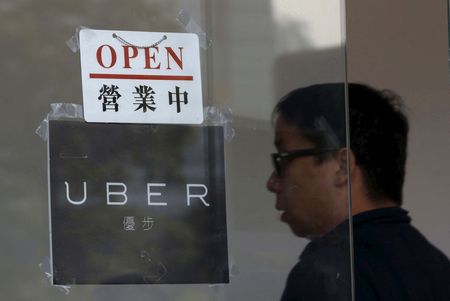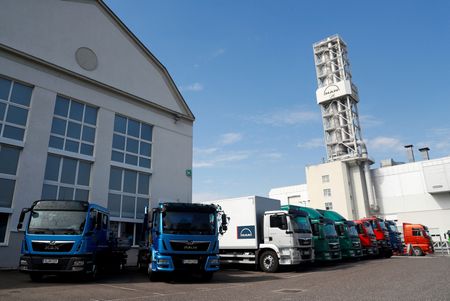(Reuters) -Uber and China’s Baidu will partner to deploy thousands of Baidu’s Apollo Go autonomous vehicles on the Uber platform across several international markets outside the U.S. and mainland China, the companies said on Tuesday.
The first rollouts are expected in Asia and the Middle East later this year.
The tie-up brings together Uber’s massive ride-hailing network with Baidu’s fleet of more than 1,000 fully driverless vehicles across the world.
It is the latest in a series of efforts by Uber to compete in the burgeoning market as tech companies race to overcome regulatory and engineering hurdles to deploy self-driving taxis at a commercial scale.
Last month, Uber launched autonomous ride-hailing services in Atlanta, expanding its partnership with Alphabet’s Waymo, while also signing deals with autonomous vehicle companies including Pony AI and May Mobility.
Tesla rolled out its long-awaited robotaxis in Austin, Texas last month, in their first public test.
Meanwhile, China’s robotaxi firms have been increasingly eyeing global expansion; Apollo Go is now present in 15 cities, including Dubai and Abu Dhabi, and, as of May, had completed more than 11 million rides.
In May, Pony AI became the third Chinese autonomous vehicle company after Baidu and WeRide to unveil an agreement to deploy its vehicles in the Middle East.
Robin Li, co-founder and CEO of Baidu, said on Tuesday that “the partnership with Uber represents a major milestone in deploying our technology on a global scale.”
Baidu has been running its Apollo Go robotaxi services commercially in several Chinese cities since 2022.
(Reporting by Deborah Sophia in Bengaluru; Editing by Mrigank Dhaniwala, Tasim Zahid and Sahal Muhammed)












